If you are exploring Proxmox alternatives on the market, you are in the right place.
When exploring virtualization, you may have encountered Proxmox Virtual Environment.
It’s a robust choice offering a suite of features for enterprise and home lab environments.
As popular as Proxmox is for its open-source nature and the extensive functionalities it provides, there might be different requirements or preferences prompting you to consider alternatives.
The virtualization space is rich with options, each bringing their own strengths tailored to various use cases and preferences.
In the realm of virtualization platforms, knowing your options allows you to find a solution that aligns with your specific needs.
Whether you’re seeking a more user-friendly interface, a platform with less overhead, or simply want to try out different hypervisor technologies, there is a spectrum of alternatives to Proxmox that could suit you.
From the versatility of open-source solutions like KVM and XCP-ng to the powerful and widely adopted proprietary systems like VMware’s ESXi or Microsoft’s Azure Virtual Machines, the choice ultimately lies in what best fits your performance requirements, budget constraints, and comfort with managing these systems.
Free and Open Source ProxMox Alternatives
As you seek a free and open source alternative to ProxMox, you’ll find several robust solutions ready to support your virtualization needs.
These options not only match the functionality of ProxMox but also offer unique features to enhance your system administration tasks.
1. VirtualBox
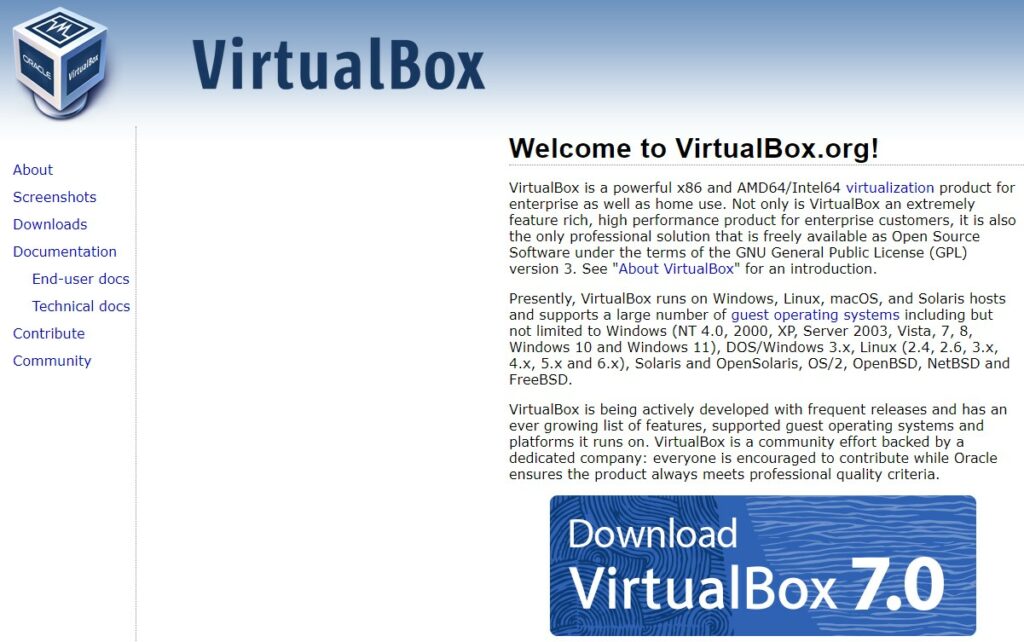
Oracle VM VirtualBox is a powerful x86 and AMD64/Intel64 virtualization product for enterprise as well as home use.
It’s an open-source software that you can use to run multiple operating systems simultaneously.
VirtualBox is known for its high performance, extensive feature set, and strong support for different guest operating systems.
- Platforms: Windows, Linux, Macintosh, and Solaris hosts
- Features:
- Easy to use and well-documented
- Supports snapshot functionality
- Capability to import and export VMs using the standard Open Virtualization Format (OVF)
2. KVM
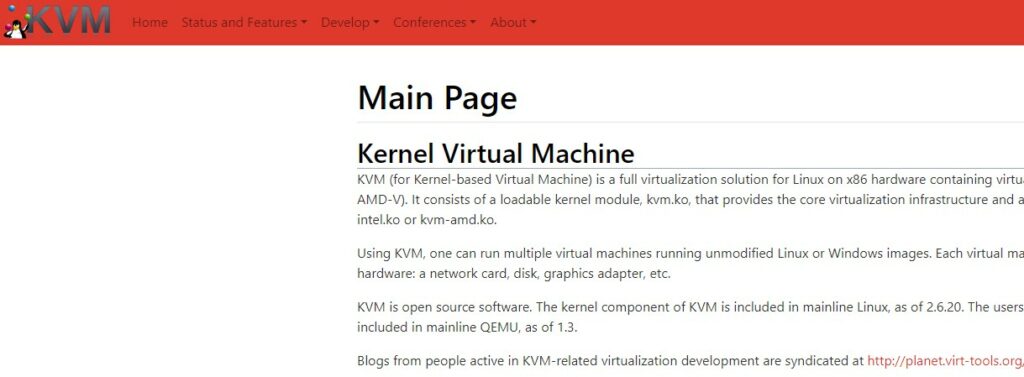
Kernel-based Virtual Machine (KVM) is a virtualization module in the Linux kernel that allows the kernel to function as a hypervisor.
It’s integrated into Linux, so if you’re already running a server on this OS, KVM is a seamless extension of your capabilities.
- Platforms: Linux
- Features:
- Direct Kernel control for near-native performance
- Works with a wide array of guest operating systems
- Large-scale community support
3. oVirt

oVirt manages your virtual infrastructure with ease and brings community-powered innovation to the private cloud.
Based on KVM and built on several other community projects, oVirt provides powerful network management and a user-friendly web interface.
- Platforms: Linux
- Features:
- Advanced network configuration
- A range of storage options
- Integration with Gluster file system for sophisticated storage functionality
Commercial Alternatives
When exploring commercial alternatives to Proxmox, you’re looking at solutions that offer support and often enhanced features suited for business environments.
These are paid options that guarantee you professional assistance and robust architecture for your virtualization needs.
4. VMware vSphere

VMware vSphere is a popular choice for virtualization.
It offers powerful management tools and extensive hardware support, making it ideal for enterprise-level deployments.
With vSphere, you receive comprehensive solutions for server virtualization, such as automated management and advanced capabilities for high availability.
5. Microsoft Azure Virtual Machines

Microsoft Azure Virtual Machines is a feature of Windows Server that enables you to create a virtualized server computing environment.
It allows you to run multiple operating systems as virtual machines on Windows.
Microsoft Azure Virtual Machines is known for its easy integration with other Microsoft services and its familiarity for Windows admins.
6. XenServer

XenServer, now known as Citrix Hypervisor, is a commercial virtualization platform.
It is acclaimed for its efficient management of Windows and Linux virtual servers.
You get features like live migration, disaster recovery, and high scalability which are essentials for managing a stable and responsive data center.
Container-Based Alternatives
When considering Proxmox alternatives, you have several container-based options that can serve as lightweight and efficient virtualization solutions.
7. Docker

Docker is a popular platform for developing, shipping, and running applications using container technology.
You can easily package your applications into containers, which are executable components combining application source code with the operating system (OS) libraries and dependencies required to run that code in any environment.
8. LXC
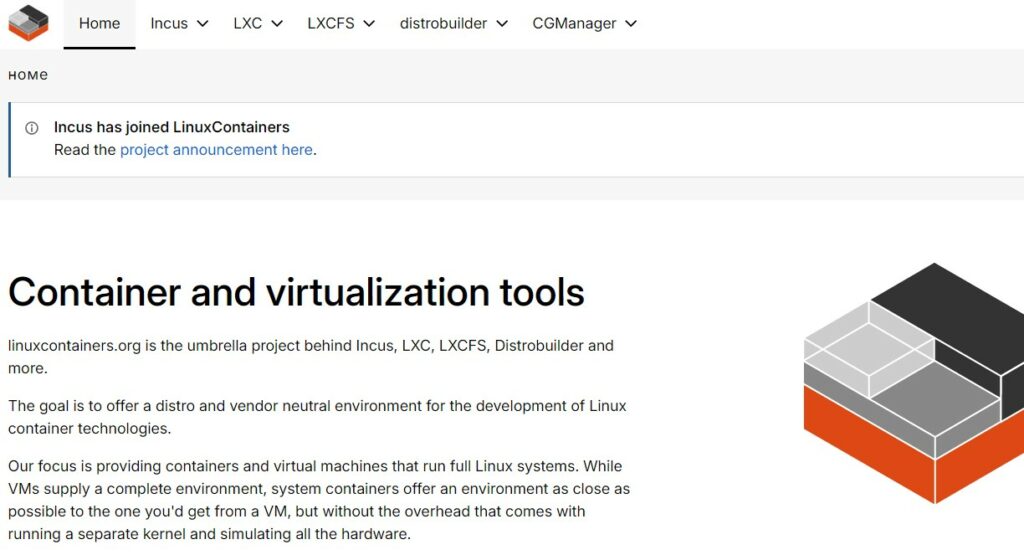
LXC, or Linux Containers, is a powerful virtualization method to run multiple isolated Linux systems (containers) on a single control host.
It’s similar to a chroot, but offers additional isolation via its own process and network space, making it an excellent lightweight alternative to full machine virtualization.
9. Kubernetes
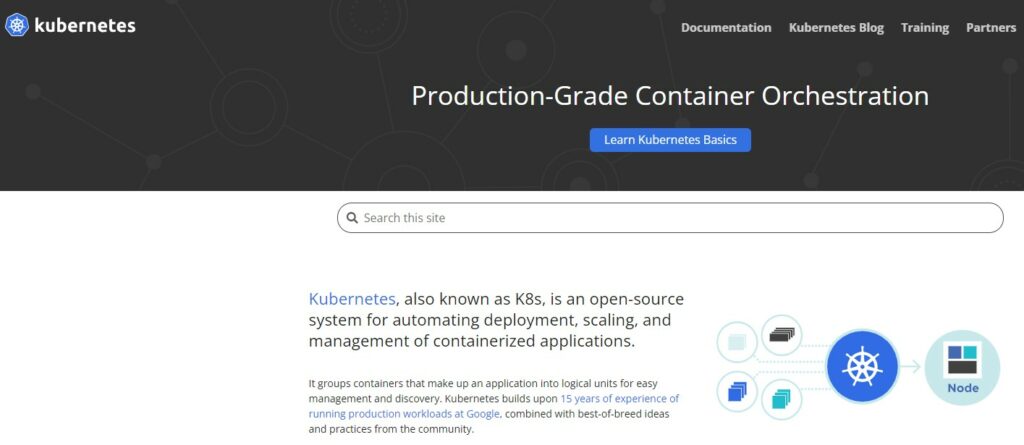
Kubernetes is an open-source system designed for automating deployment, scaling, and management of containerized applications.
While not a hypervisor in itself, Kubernetes works with container technologies like Docker and allows you to orchestrate and manage containers across a cluster of machines.
Management and Functionality Enhancements
When exploring Proxmox alternatives, you should pay special attention to how they enhance management features and functionality.
Your choice should not only align with your technical requirements but also simplify operations and offer robust management capabilities.
10. OpenNebula
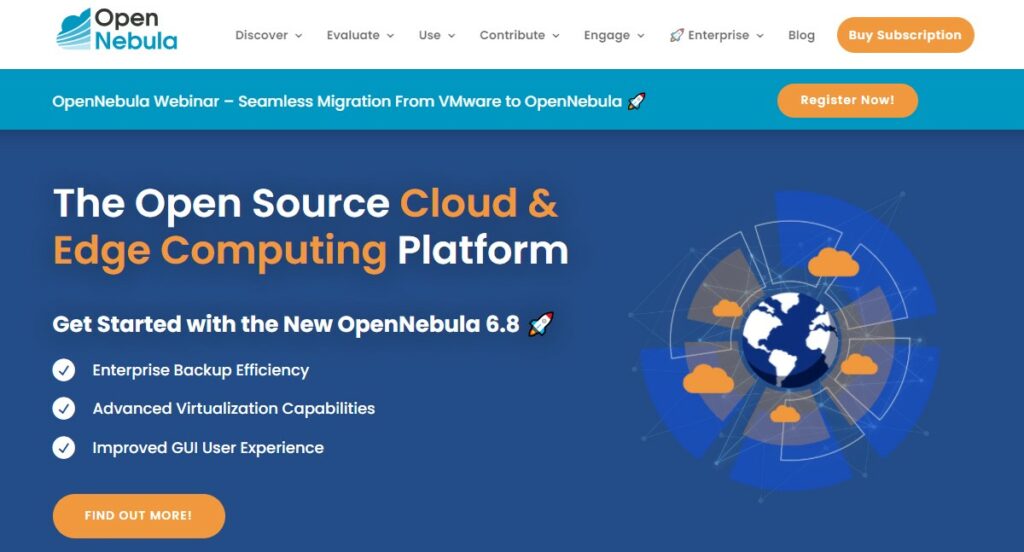
OpenNebula provides a simplified, yet powerful, approach to managing your data center’s virtual infrastructure.
You can enjoy one-click deployments of complex applications across multiple virtualized environments, which greatly streamlines your workflows.
What’s more, OpenNebula enhances management by offering:
- Self-service portal: Allowing users to manage their own virtual resources without compromising efficiency.
- Hybrid cloud integrations: You have the flexibility to combine on-premises and public cloud resources, tailoring the environment to your specific needs.
11. CloudStack
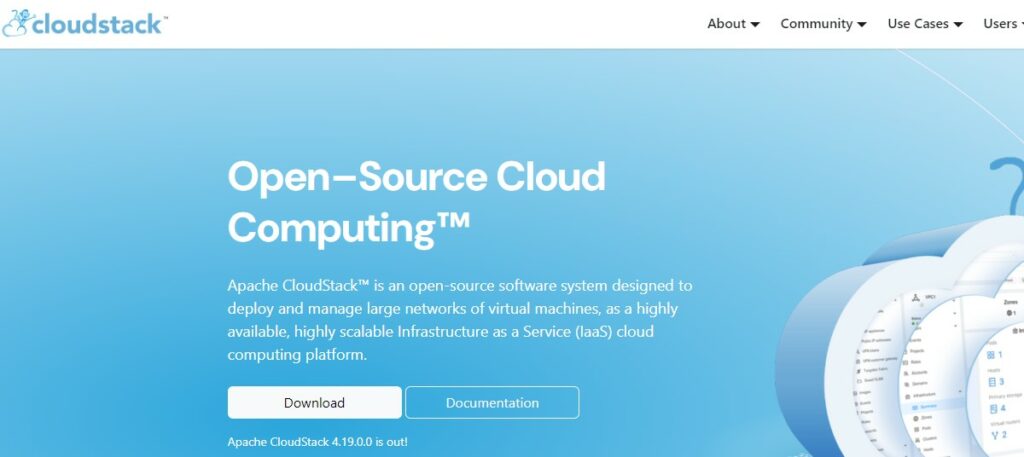
CloudStack boasts a comprehensive management console that organizes and controls your cloud resources with ease.
Under CloudStack’s umbrella, you gain access to:
- Advanced Networking: Customize network offerings for different traffic types with granularity, including firewalls, VPNs, and load balancing.
- Automatic resource allocation: Virtual machines and other resources are allocated intelligently based on the demand within your environment.
CloudStack makes sure that you can utilize its functionality with minimal fuss, thus improving your overall management experience.
The platform is designed to be both intuitive and capable, ensuring you can focus on your business goals rather than getting bogged down by complex management tasks.
Key Takeaways
When exploring Proxmox alternatives, focus on virtualization capabilities and how they align with your infrastructure needs.
Here is a streamlined comparison to guide your decision:
Hypervisor Type: You have options between Type-1 and Type-2 hypervisors.
QEMU/KVM is a combination that works as a Type-1 hypervisor, offering robust performance similar to Proxmox.
Compatibility and Community: Solutions like Proxmox boast a vast community, providing a supportive environment for troubleshooting and advice.
The platform’s versatility is a key aspect that might align well with your requirements for a flexible and budget-friendly virtualization solution.
Cloud Integration: In your search, consider how well the alternative integrates with cloud services, which can be crucial for scaling your operations.
Open Source vs Proprietary: Proxmox is open source; if that’s important to you, make sure to look for alternatives that offer similar transparency and potential for customization.
Hardware Requirements: Different platforms, like Proxmox VE 6.3-1 and ESXi, have specific hardware requirements.
Assess your current hardware to ensure compatibility with the software you choose.
Migration Potential: If you might transition to Proxmox later, choose a hypervisor that allows easy migration of virtual machines, like QEMU.

